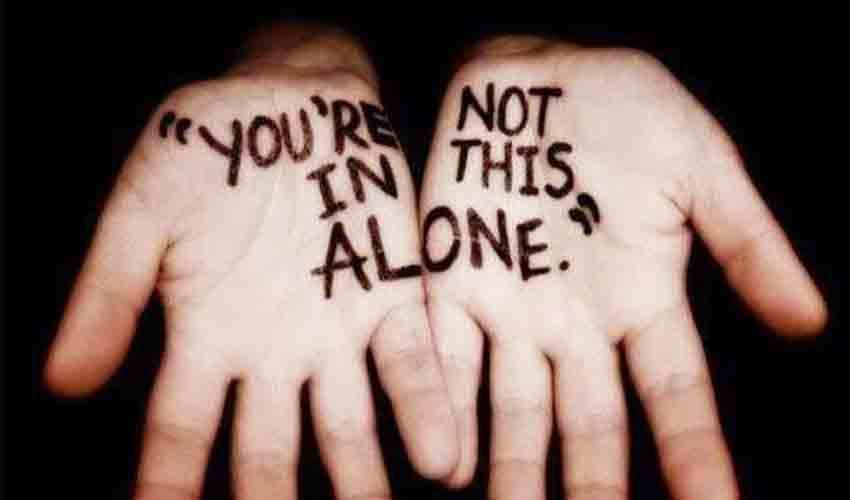Last time I wrote about practical ways in which churches can work to address the concrete needs of those affected by mental illness and emotional distress in their congregations. That frankly is something that is not too difficult or controversial. The more difficult task for clergy is how to address mental health during the service. Here as well I think a holistic approach is best and necessary. Every aspect of the service, from choice of music to sermon, can and should speak to these issues. Continue reading
church
Mental Health and Your Congregation: Relating Faith and Psychology Part 2

Previously I wrote concerning the importance of faith communities as well as professional support in addressing mental health in our congregations. I advocated using a holistic approach, addressing the spiritual, emotional, physical and social aspects of the whole person. Today I am going to look at practical ways that churches can do that. Continue reading
Balancing grace and growth in the ministry of the church

I came across an interesting discussion on LinkedIn regarding the state of the American church, namely that the “seeker” model has failed to create real disciples and failed to make an impact in our culture. “Felt needs” (always a poorly defined term) have replaced authentic discipleship, and the church and culture are sick because of it.
There is a pretty fair divide between those who see the role of pastor or church (not “the body of Christ” Church, but local body “church”) as to evangelize and bring people into the body of Christ (the Church), and those who see the main role of the pastor/church as teacher or pedagogue.
The first will use any means necessary to get people through the doors because it sees salvation as the end result. People come to church, hear the gospel, and get saved. If it takes a light show and Starbucks in the lobby to get them in, so be it. I worked at one of these churches for a time and saw the good and bad of it. They were great at getting people in the door, but it didn’t know what to do with them afterward. Growth was secondary. It was part of the program, but was not a primary driver. The church grew and became very influential, and still is. But the leadership had difficulty seeing themselves as something other than a youth group for adults (thankfully I can say that has changed). Continue reading
Is John Calvin’s God Capable of Love?
After sitting dusty on my shelf ever since I bought it, I decided several weeks ago to crack open Calvin’s Institutes of the Christian Religion. I’ve been questioning my Calvinist upbringing for some time, mostly because I didn’t feel like I ever owned it. I was trained Reformed: Presbyterian church (PCA of course), Presbyterian college (Reformed Presbyterian, which even the PCA thinks is too stodgy). Mom and dad had RC Sproul on the radio and Tabletalk on the bookshelf. So I was thoroughly baptized in Calvinism and had been taught it exhaustively, even though I never really studied it per se. I had read plenty of Calvinists, but never Calvin. I decided to change that.
I now believe that if more Calvinists read Calvin, and not just other Calvinists, there would be fewer Calvinists.
Before I go on I’ll say that this is not a book review, a scholarly article, or even all that well thought out. I’m only about a quarter of the way through the Institutes, so I would expect that many will read this and respond to my objections pointing out that I don’t know all the facts. You’re absolutely right – I don’t. This is more my reaction as I encounter Calvin and Calvinism directly in the moment. It’s part of the process. I’m not going to bash him as a person, but I do have serious questions about his theology and reasoning(which God foreordained me to have before the beginning of time for the purpose of manifesting His glory, hallelujah). I’ll have more of these I’m sure in the future.
Is Calvin’s God capable of love?
As I read the Institutes I encountered a discussion of God based primarily in terms of will. It is God’s will that maintains the universe, that seeks his own glory, that creates and destroys, that is providentially manifest in every action and reaction from the cosmic to the subatomic. The answer to why God governs all these things has to do with manifesting God’s own glory and purpose according to Calvin. There is, at least so far in my reading, no mention of God’s love for what he has created, though. Continue reading
The Dying Art of Pastoral Care
I may have said this before, but I think pastoral care is a dying art.
The evidence for this is overwhelming, at least from my vantage point. Seminaries demand multiple years of attention to developing skill and knowledge in exegesis, languages, hermeneutics, and preaching, but I doubt if most require more than a semester devoted to pastoral care issues such as counseling and crisis management. I’m thankful that at Yale Divinity School I was able to focus my attention on this area, and that it offered several different courses on pastoral care and counseling to different groups. I had a great deal of freedom to do this in that I was not tied to denominational requirements. I didn’t take any languages because I never saw myself as an exegete to that degree. However most of the other students there were following programs to meet their respective denominations’ requirements. In some cases this required a semester of pastoral care or CPE, but I don’t know if that was across the board.
When did ministry become an academic exercise, focused primarily on sermon writing and exegesis? When did ministry become a business for that matter? When did pastoral care become something that only happens in a couple marriage counseling sessions or when talking with a family about what songs or scriptures they want at their dad’s funeral? When did pastoral care get assigned to lay volunteer prayer and care groups, who may get little if any training or support beyond a space and time to meet at the church? When did clergy become too busy managing the church to provide care to the people in that church? Continue reading
Why I’m a Chaplain – III: “The Church” and the wandering path
At one point in my life I had wandered away from my faith. Not wandered, more like stormed out to be honest. That’s a whole other issue. I came back though, and a big reason I came back was I attended a Christmas service at a large megachurch here in Pittsburgh that changed my perspective on myself and my relationship with God. I started attending and joined about a year later. Continue reading
Clinical Pastoral Education isn’t just for Chaplains
Back in seminary I had the opportunity to do CPE at a local hospital in New Haven. It was a great facility and a prime opportunity – the slots fill up fast. But I didn’t take it because I planned on doing more traditional church ministry, not chaplaincy. While some of my classmates jumped at the opportunity to get CPE, others, like myself, said “why bother if I’m not going to need it?” Looking back I can see that I missed out on a great opportunity.
So do you need Clinical Pastoral Education if you’re planning on traditional ministry? Is it really only for hospital chaplains or navel gazers? Absolutely not. Continue reading
Why the Secularization of America May Be Good Thing for Christians
Here’s a story from my life. I grew up in a great Christian home and had the fortune of being in a very active youth group in high school. I was involved in local and short-term missions, was helping lead weekly discipleship, and had some tremendous “mountaintop” experiences while camping. Then I went to college. My faith stagnated, my spiritual life suffered, my relationships turned toxic. By the end of my fourth year I was a mess of anxiety and depression, and had pretty much given up on God and my faith. All because I went to a secular state school, right? Nope – a good, well-respected, conservative Christian college. Continue reading
Matthew 19:16; I am the Rich Young Ruler
“Then someone came to him and said, “Teacher, what good deed must I do to have eternal life?” Matt 19:16 NRSV
So begins the story of the “rich young ruler” in Matthew.
There’s a lot said negatively about this man, some founded and some unfounded. But let’s start by giving him the benefit of the doubt. He comes to Jesus, recognizing Him as a Rabbi with authority, to ask about how to attain eternal life. It seems as if at first that he is appealing to do something over and above what is necessary regarding the law, as he is asking about a “good deed” and not a general “what do I do”. No doubt that Jesus had many ask him this as it would be a question pressing to many Jews. No doubt the Pharisees and Sadducees had their own teachings on this and I would imagine people going from Rabbi to Rabbi (like the way people church-hop today) to gather opinions and find one that they find best fitting and proper, or most convenient for them. Continue reading
On Donald Miller and Christ outside the church
Donald Miller recently wrote in his blog, “I don’t connect with God by singing to Him.” Well Don, I don’t either.
That doesn’t mean that I don’t sing to God. But I find that the only time I do is in church on Sunday for about 20 minutes. At times I find myself being drawn closer to God by music, including Christian music, but those songs somehow never make their way into the worship center.
Plus I don’t sing well. While I knew this all along, it became glaringly obvious to me when I attended a Reformed Presbyterian church in college. At RP services no hymns are sung, and there is no musical accompaniment. The congregants sing the Psalms a-capella, often breaking into multiple lush harmonies as the verses change. I just stood and listened. It was beautiful, but I was a spectator, not a participant.

